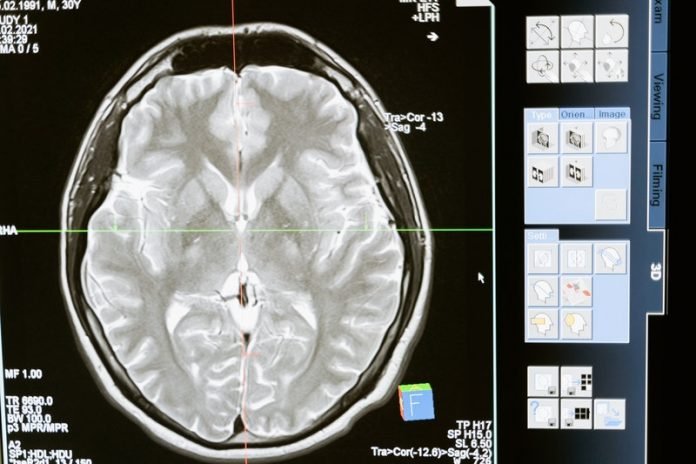
In a new study from Nagoya University, researchers found that microRNAs in urine could be a promising biomarker to diagnose brain tumors.
Their findings suggest that regular urine tests could help early detection and treatment of brain tumors, possibly leading to improved patient survival.
Early diagnosis of brain tumors is often difficult, partly because most people undergo a brain CT or MRI scan only after the onset of neurological deficits, such as immobility of limbs, and incapability of speech.
When brain tumors are detected by CT or MRI, in many cases, they have already grown too large to be fully removed, which could lower patients’ survival rate.
As a diagnostic biomarker of cancerous tumors, microRNAs (tiny molecules of nucleic acid) have recently received considerable attention.
MicroRNAs are secreted from various cells, and exist in a stable and undamaged condition within extracellular vesicles in biological fluids like blood and urine.
In the study, the team focused on microRNAs in urine as a biomarker of brain tumors. Urine can be collected easily without putting a burden on the human body.
The new device they developed is equipped with 100 million zinc oxide nanowires, which can be sterilized and mass-produced, and is, therefore, suitable for actual medical use.
The device can extract a much greater variety and quantity of microRNAs from only a milliliter of urine compared to conventional methods.
Their analysis of microRNAs collected using the device from the urine of patients with brain tumors and non-cancer individuals showed that many microRNAs derived from brain tumors actually exist in urine in a stable condition.
Next, the researchers examined whether urinary microRNAs can serve as a biomarker of brain tumors, using their diagnostic model based on the expression of microRNAs in urine samples from patients with brain tumors and non-cancer individuals.
The results showed that the model can distinguish the patients from non-cancer individuals at a sensitivity of 100% and a specificity of 97%, regardless of the malignancy and size of tumors.
The researchers thus concluded that microRNAs in urine are a promising biomarker of brain tumors.
The researchers hope that their findings will contribute to the early diagnosis of aggressive types of brain cancer, like glioblastomas, as well as other types of cancer.
If you care about brain cancer, please read studies about this anti-diarrhea drug may help kill brain cancer and findings of a new drug to treat deadly brain cancer.
For more information about brain cancer prevention and treatment, please see recent studies about the root cause of a deadly brain cancer and results showing a breakthrough blood test for brain cancer.
The study is published in ACS Applied Materials & Interfaces. One author of the study is Associate Professor Atsushi Natsume.
Copyright © 2021 Knowridge Science Report. All rights reserved.




